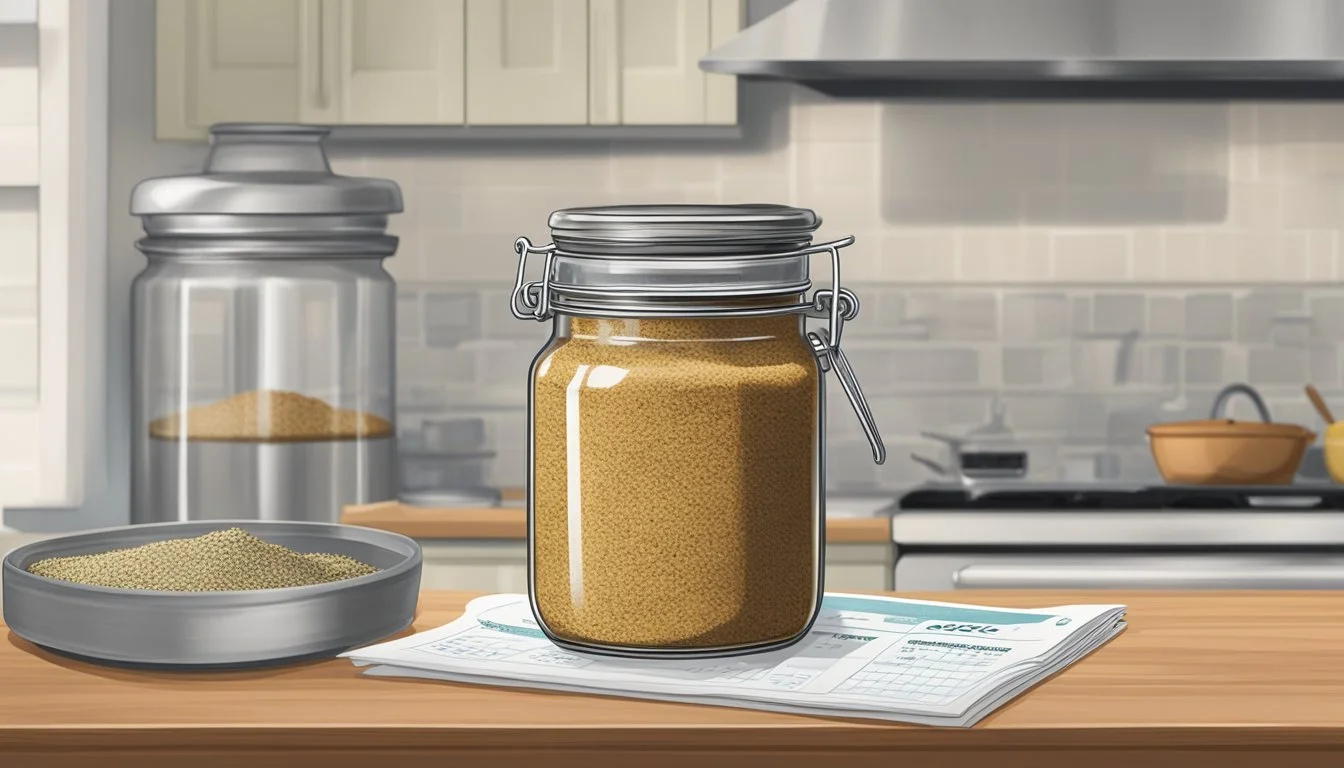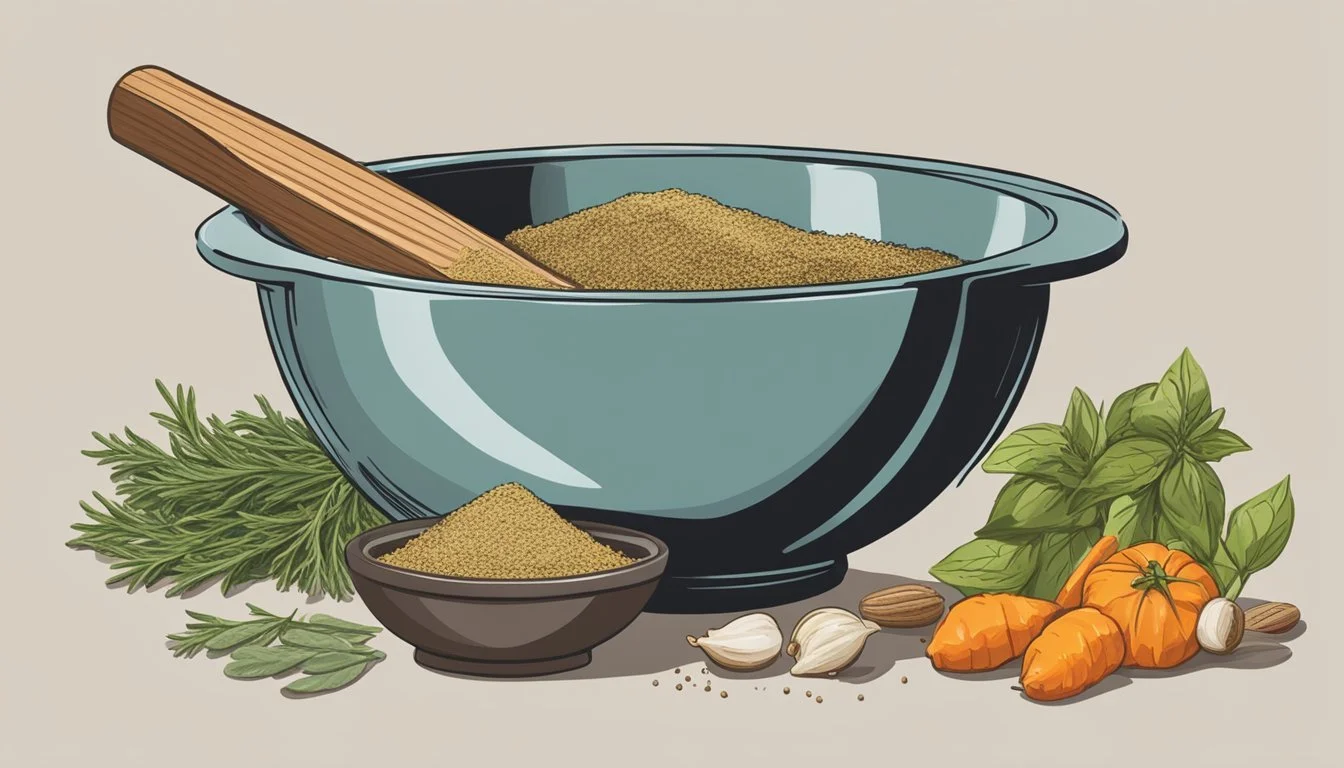Does Greek Seasoning Expire?
Understanding Shelf Life and Storage Tips
Greek seasoning, a staple in many kitchens, blends aromatic herbs and spices typically found in Mediterranean cuisine. Like other seasonings, the longevity of Greek seasoning depends on its components and storage conditions. Most Greek seasonings can last anywhere from several months to a few years if stored properly.
The life span of Greek seasoning varies, depending largely on whether the spices are ground or whole. Ground spices generally have a shorter shelf life, ranging from six months to two years. Whole spices, such as peppercorns or dried herbs, can stay fresh for one to three years.
To maintain the freshness of Greek seasoning, it should be kept in a cool, dark place, away from moisture and direct sunlight. Regularly checking the appearance and aroma can also help determine if it’s time to replace the seasoning.
Understanding Greek Seasoning
Greek seasoning is a versatile blend that encapsulates the rich flavors of Mediterranean cuisine. This section explores what Greek seasoning is, and the essential components that make up this aromatic mix.
Defining Greek Seasoning
Greek seasoning is a flavorful blend used to elevate the taste of various dishes. It captures the essence of Mediterranean cooking, drawing heavily from the culinary traditions of Greece.
This seasoning often features a mix of dried herbs and spices, creating a balanced and aromatic profile. It is commonly used on meats, vegetables, roasted potatoes, and even in marinades and dressings.
The unique combination of herbs such as oregano, thyme, and rosemary gives it a distinct taste that is both earthy and fragrant. This makes Greek seasoning a popular choice for anyone looking to add a touch of Mediterranean flair to their cooking.
Key Ingredients in Greek Seasoning
Oregano: A staple herb in Greek cuisine, oregano provides a robust and slightly bitter flavor. It is often the dominant herb in the blend.
Thyme: Adds a subtle, earthy taste with hints of lemon. Thyme complements the other herbs well.
Rosemary: Known for its strong, pine-like aroma, rosemary is often used in smaller amounts due to its potent flavor. It adds depth and complexity.
Dill: Offers a fresh, slightly tangy taste. Dill is not always included but can be found in some recipes.
Marjoram: This herb brings a milder, sweet, and somewhat citrusy note. It is closely related to oregano but has a softer flavor profile.
Basil: Adds a sweet and slightly peppery flavor. Basil can be found in variations of Greek seasoning, particularly those influenced by broader Mediterranean cuisine.
Garlic Powder and Onion Powder: These spices provide a savory base, enhancing the overall flavor of the blend.
Black Pepper and Salt: Essential for balancing the flavors, these common seasoning components tie everything together.
By understanding these key ingredients, one gains a clearer picture of what makes Greek seasoning unique and how to best utilize it in cooking.
Shelf Life of Greek Seasoning
Greek seasoning, like most spice blends, has a varied shelf life depending on whether it contains whole or ground spices and how it is stored. The potency and flavor can diminish before the expiration date if not kept properly.
Whole Spices Vs Ground Spices
Whole spices in Greek seasoning, such as peppercorns or whole allspice, have a longer shelf life compared to ground spices. Whole spices can remain potent for 3-4 years if stored in a cool, dark place.
Ground spices within the blend, like paprika or ground cumin, tend to lose their flavor faster. These spices usually retain their best quality for 2-3 years. Unused, dried herbs in the mix will also follow this timeline.
Factors Affecting Potency
Several factors impact the shelf life and flavor potency of Greek seasoning. Light, heat, and moisture are the primary culprits that degrade spices. Keeping the seasoning in an airtight container, away from direct sunlight, and in a cool, dry place will extend its effective life.
The expiration date on commercial seasonings is another guide. While spices may not spoil in a way that makes them unsafe, their flavor can become muted. Regularly checking the labeling and being aware of the storage environment helps maintain the seasoning's quality.
Optimal Storage Conditions
Proper storage of Greek seasoning extends its shelf life and preserves its flavor and aroma. By maintaining a cool, dry environment and using airtight containers, you can prevent degradation caused by exposure to air, moisture, and light.
Importance of Airtight Containers
Airtight containers are crucial for preserving the freshness of Greek seasoning. Exposure to air can lead to oxidation, which diminishes the potency and taste of the spices. Airtight containers prevent air from entering, thus slowing down the degradation process.
Using containers with tight seals, such as glass jars with rubber gaskets or high-quality plastic containers, ensures minimal air penetration. Vacuum-sealed containers offer an even better solution, creating an environment that prevents contamination by air.
In a pantry setting, storing seasoning in airtight containers keeps it protected from unwanted moisture and pests. Glass or opaque containers are preferable, as they offer additional protection against light, which can also affect the quality of the seasoning.
Effects of Heat, Light, and Moisture
Heat, light, and moisture play significant roles in the degradation of Greek seasoning. Spices should be stored in a cool, dry place. Ideal temperatures for storage range between 50 to 70 degrees Fahrenheit. Storing them away from the stove or any heat-emitting appliances is critical.
Direct light, especially sunlight, accelerates the breakdown of essential oils in spices. Storing Greek seasoning in a dark pantry or a drawer limits its exposure to light, thereby preserving its quality.
Moisture is another adversary, as it can cause clumping and mold growth. To avoid this, always ensure that containers are completely dry before placing the seasoning inside. Using silica gel packets or dry rice in storage can help absorb excess moisture, protecting the seasoning from spoilage.
Recognizing When to Replace Greek Seasoning
Greek seasoning, like any other spice blend, loses its effectiveness and taste over time. Paying attention to visual and sensory changes can help you determine when it's time to replace it.
Changes in Color and Aroma
One of the first signs that Greek seasoning needs replacing is a change in color. Fresh Greek seasoning typically has a vibrant mix of green and brown hues from herbs and spices. If the colors fade or become dull, the quality and potency of the seasoning are likely compromised.
A significant change in aroma is another key indicator. Fresh Greek seasoning should have a robust and aromatic scent. If the aroma is weak or has an off-putting smell, it's time to discard it, as the flavor won’t be as impactful in your dishes.
Texture and Clumping Issues
Examining the texture is also essential. Fresh Greek seasoning should feel dry and free-flowing. If you notice unusual clumping, it might be due to moisture exposure, which not only affects texture but can also reduce flavor and result in spoilage.
Texture changes can also signify the presence of contamination or age. Clumps that are hard to break apart usually indicate that the seasoning has absorbed moisture and should be replaced. Always keep the seasoning in an airtight container to preserve its quality.
Usage Tips for Optimal Flavor
Properly using Greek seasoning can make a significant difference in the taste and aroma of your dishes. The following tips will help ensure you make the most out of this flavorful spice blend.
Cooking With Greek Seasoning
Greek seasoning is a versatile blend that complements a variety of dishes. For marinades, mix it with olive oil and lemon juice to enhance meats such as chicken or lamb. It works well as a dry rub for grilling meats, imparting a rich Mediterranean flavor.
Vegetables also benefit from a sprinkle of Greek seasoning. Add it to roasted potatoes, grilled vegetables, or even sprinkle on a garden salad for an extra burst of flavor.
Incorporate it into dips like tzatziki, or in salad dressings for a unique twist. A teaspoon in your homemade dips can elevate the flavor significantly.
Toasting and Grinding Spices
Toasting and grinding your spices can drastically improve their flavor. Start by lightly toasting whole spices in a dry skillet over medium heat until they begin to release their aroma. This step intensifies the flavors before they are ground.
Once toasted, let the spices cool before grinding. Use a spice grinder or mortar and pestle for this task. This process ensures a fresh and potent spice mix that enhances any recipe.
Store ground Greek seasoning in a cool, dry place to maintain its intensity. It keeps its flavor best when stored in an airtight container away from direct sunlight. This practice helps prolong the seasoning's shelf life while preserving its rich taste and aroma.
Creating Homemade Greek Seasoning
Creating your own Greek seasoning allows for customization to personal taste and ensures the freshest ingredients. It also provides the flexibility of storing and labeling your mixes for easy identification and freshness.
Advantages of Making Your Own Blends
Homemade Greek seasoning blends offer unparalleled control over the combination and quality of herbs and spices. This allows the cook to choose organic ingredients or to cater to specific dietary preferences, such as low-sodium options.
Making your own mix ensures the freshness of each component, such as oregano, thyme, basil, and rosemary, which may lose potency over time. Homemade blends can also be adjusted in terms of flavor intensity and spice levels, perfect for experimenting with different Mediterranean recipes.
Storing and Labeling Homemade Mixes
Proper storage of homemade Greek seasoning is crucial for maintaining its quality. Keep the blend in airtight containers or jars to protect it from moisture and light. Label the jar with the name of the seasoning and the date it was made to track its freshness.
A clear label helps in quickly identifying the blend while cooking. Store the jars in a cool, dark place, such as a pantry, to extend the shelf life. For best results, use the seasoning within six months to a year to ensure the vibrant flavors of the herbs and spices remain intact.





